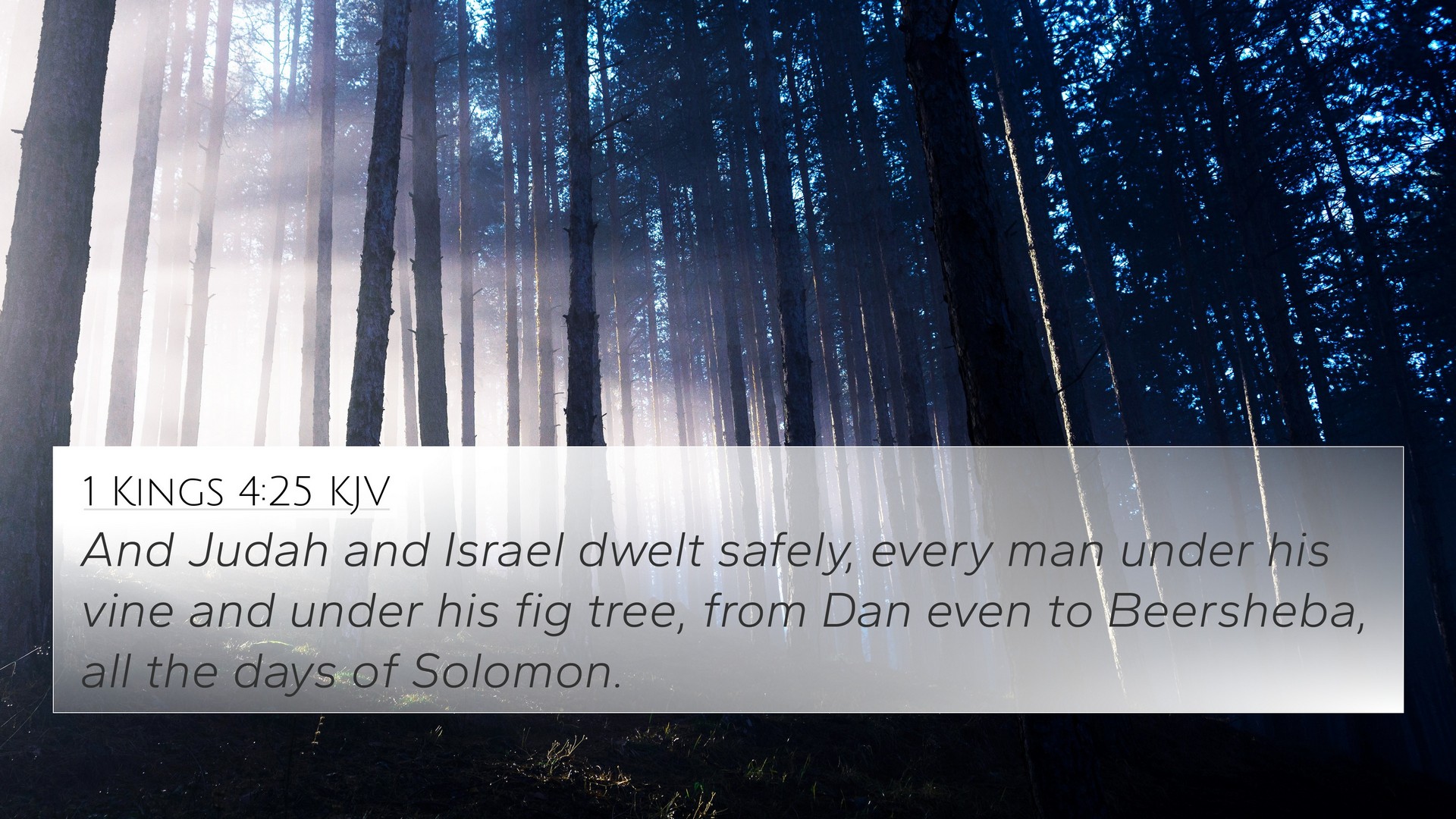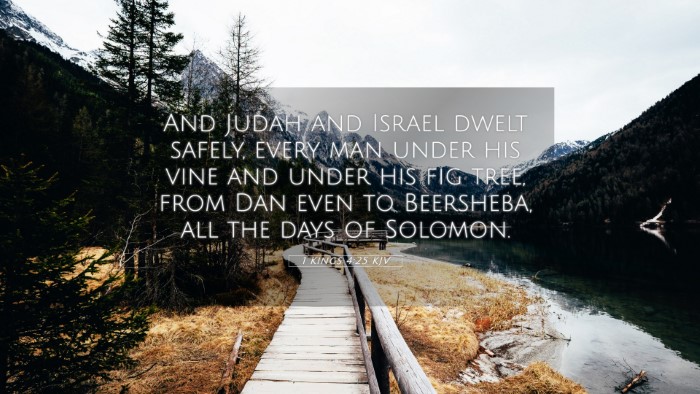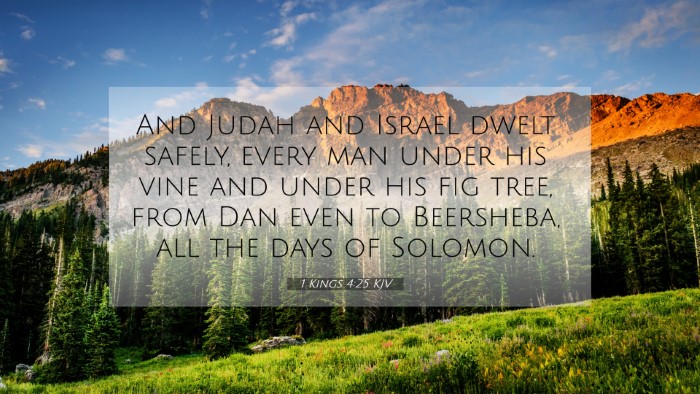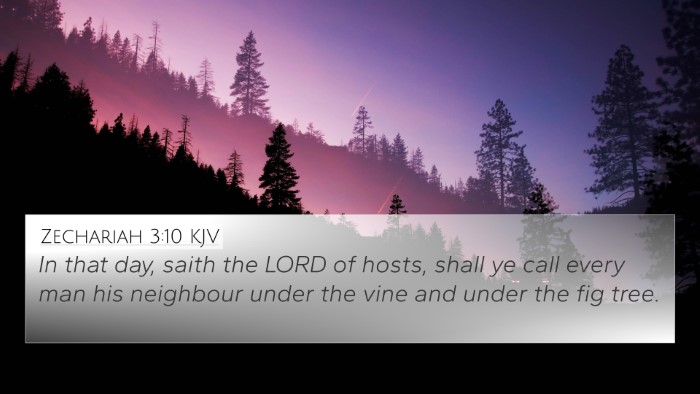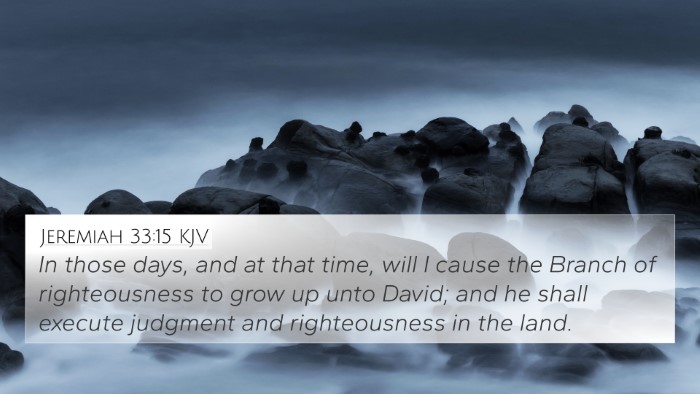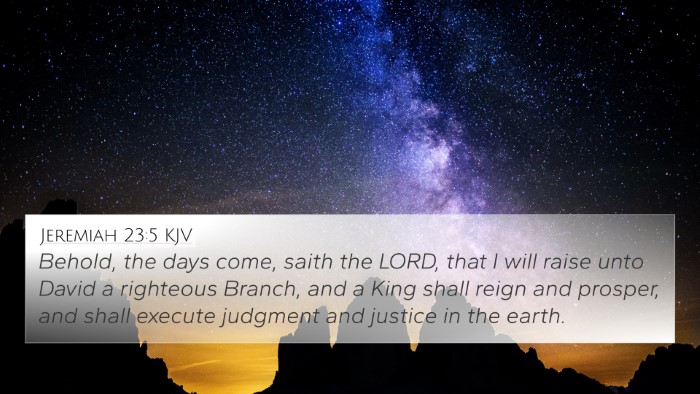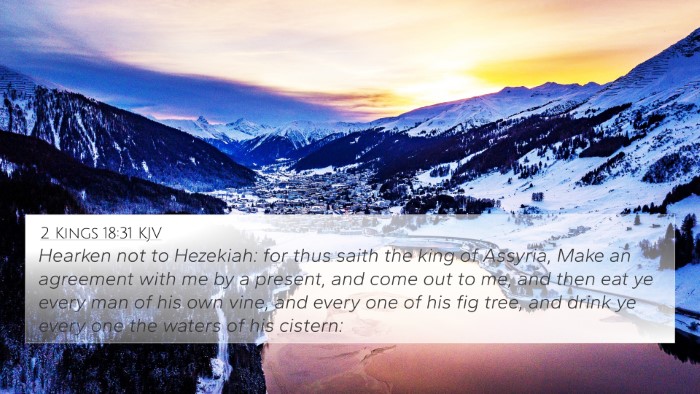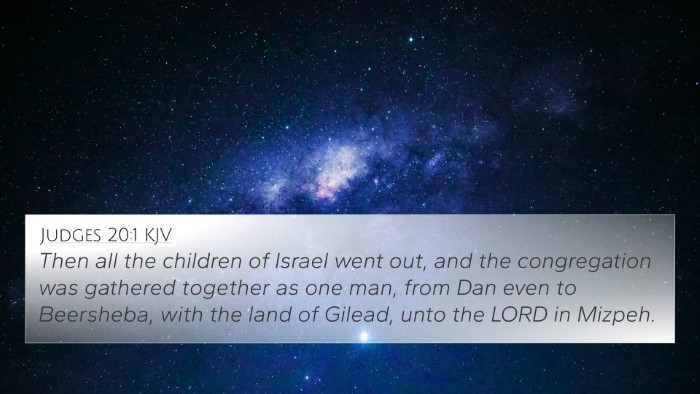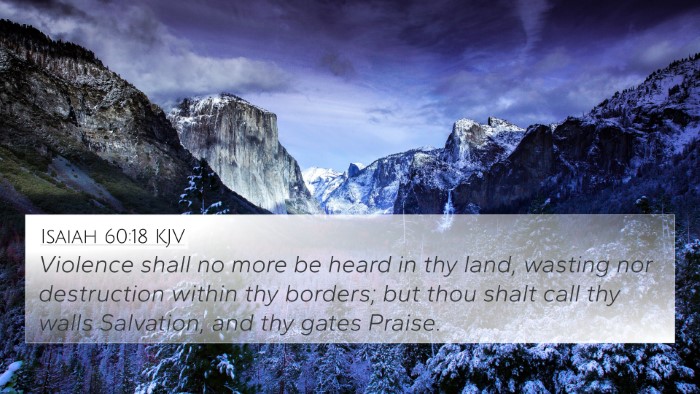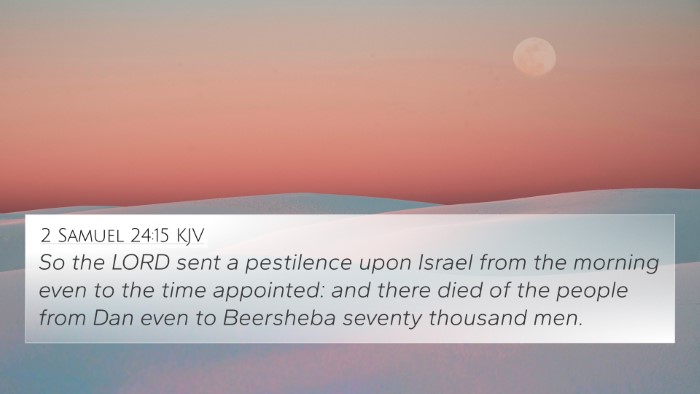Understanding 1 Kings 4:25: "And Judah and Israel dwelt safely, every man under his vine and under his fig tree, from Dan even to Beersheba, all the days of Solomon."
This verse encapsulates a period of peace and prosperity during King Solomon's reign, highlighting the security and contentment experienced by the Israelites. The imagery of everyone sitting under their own vine and fig tree represents individual prosperity and the collective well-being of the nation.
Commentary Insights
Matthew Henry's Commentary: Matthew Henry emphasizes that this verse signifies the safety and tranquility that Solomon brought to Israel. Under Solomon's leadership, the people enjoyed peace and stability, which allowed for agricultural and social flourishing. The reference to "every man under his vine and fig tree" indicates that personal space and resources were safeguarded, illustrating a time of national contentment and godliness.
Albert Barnes' Notes: Albert Barnes notes that this peace is a result of Solomon's wisdom and the fear of the Lord among the people. The inclusion of "from Dan even to Beersheba" marks the extent of the kingdom, underscoring the unity of the nation. The symbolic significance of the vine and fig tree is to show abundance and security, reflective of the promises made to the Israelites regarding their land.
Adam Clarke's Commentary: Adam Clarke provides additional insights about the importance of familial and community life represented in the imagery of the vine and fig tree. He explains that these plants were not only signs of prosperity but also central to the cultural and spiritual life of the Israelites, indicating a harmony in their social structure.
Bible Cross-References
- Micah 4:4: "But they shall sit every man under his vine and under his fig tree; and none shall make them afraid." This verse echoes the themes of peace and security.
- Zechariah 3:10: "In that day, says the Lord of hosts, you will invite each other to come under your vine and under your fig tree." It reinforces community and peace.
- Deuteronomy 8:7-10: "For the Lord your God is bringing you into a good land; a land of brooks of water, of fountains and springs, that flow out of valleys and hills..." This passage references the blessings of the land.
- Proverbs 3:17: "Her ways are ways of pleasantness, and all her paths are peace." This connection highlights wisdom leading to peace in life.
- Isaiah 32:17-18: "The work of righteousness will be peace, and the effect of righteousness, quietness and assurance forever." This passage complements the theme of national prosperity.
- John 14:27: "Peace I leave with you, My peace I give to you..." This New Testament reference links the concept of peace to Jesus's teachings.
- Acts 9:31: "Then the church throughout Judea, Galilee, and Samaria enjoyed a time of peace and was strengthened..." Here, the church experiences similar peace as seen in the time of Solomon.
Thematic Connections
The themes present in 1 Kings 4:25 connect with various doctrinal principles found throughout the Scriptures, focusing on God's provision, peace, and blessing upon His people.
Peace and Security in Scripture
The idea of God providing peace is a recurring theme within both the Old and New Testaments. The mentioned cross-references provide insight into this thematic development, showing how the Old Testament anticipates a fulfillment of peace that is realized in the New Testament through Christ.
Common Symbols in Biblical Narratives
The symbols of the vine and fig tree appear throughout the Bible, denoting not only material prosperity but also spiritual well-being. They invite deeper contemplation regarding the significance of dwelling in safety and the blessings bestowed upon those who live righteously.
Practical Applications of 1 Kings 4:25
This verse encourages believers to seek peace within their lives and communities, drawing from the Biblical example of Solomon's reign. It encourages personal responsibility in maintaining one’s own "vine and fig tree," or personal space and livelihood, while promoting unity within the broader community of faith.
Conclusion
1 Kings 4:25 serves as a powerful testament to the fruitful results of godly leadership and the blessings that follow those who fear the Lord. Through careful cross-referencing and realization of thematic ties, deeper understanding of peace and provision unfolds, urging modern readers to reflect on their own lives and their alignment with these Biblical values.
